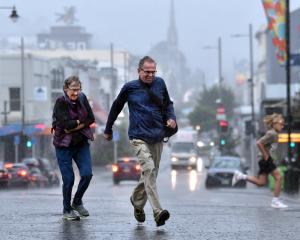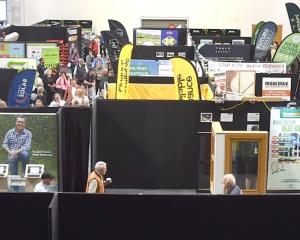A total fire ban across Otago has begun as authorities warn of extreme risk of a major blaze that could take weeks to put out.
Dry conditions and plentiful fuel would cause any fire to spread quickly, Otago Rural Fire Authority principal rural fire officer Stephanie Rotarangi said.
''The risk of accidental ignition from a spark or ember transfer is extreme.''
Any fire, whether started by a controlled burn or a chainsaw spark, could cause widespread damage.
City Forest chief executive Grant Dodson said a fire in scrub or forestry would take a ''major effort in expense and time to put it out''.
''It's going to do a lot of damage and take weeks, not days, to put out, so we need to make sure it is not going to happen.''
A total fire ban began in Central Otago last month but the restrictions have been extended to coastal and southern areas, from Oamaru to Papatowai.
A similar ban comes into force in Canterbury tonight.
Niwa says warmer and drier-than-normal weather is likely to continue for the next three months.
MetService's January outlook suggests some rain mid-month with a brief spell of cooler temperatures for the eastern South Island before warmer conditions return by the end of the month.
Dr Rotarangi said an accidental fire was less likely to start during the cooler temperatures and light rain.
But these conditions would not change the fire risk, based on factors such as grass curing, fine fuels and drought codes.
''It will take substantial and sustained rain to provide a respite.''
Otago Rural Fire Authority deputy principal officer Jamie Cowan, of Queenstown, said: ''The only flame we want to see in Otago is a gas barbecue - it's just too dry.''
High fire danger is predicted today, with temperatures in the mid-20s across the region.
''We are set for some hot, dry, windy days,'' Mr Cowan said.
''With any source of ignition on those days, the risk is far greater because if you add the wind it's very difficult to contain a fire under wind.''
The ban applies to both rural and urban areas and all fire permits are revoked.
Camp fires, fireworks, bonfires, rubbish fires, braziers, flying lanterns and outdoor incinerators are all banned.
Gas barbecues are permitted.
Dr Rotarangi said: ''We realise a total fire ban is inconvenient for landowners.''
People also needed to take care when operating equipment such as mowers, grinders and chainsaws, she said.
Special fire permits would be considered by the authority for emergency situations if conditions allowed.
The authority was working with local authorities and other agencies.
It would suggest some consider postponing work such as mowing, grinding and welding.
''We approach fire risk on a case-by-case basis.''
Mr Dodson said plantation forest harvesting was due to start again in the next couple of days.
Extra precautions would be taken to ensure the fire risk was minimised, including having teams start and finish earlier to ensure they avoided the heat of the day.
''We're extremely concerned. Everyone is going to have to be very diligent.''
A fire watch would be kept on areas after work had finished to ensure nothing ignited, he said.













